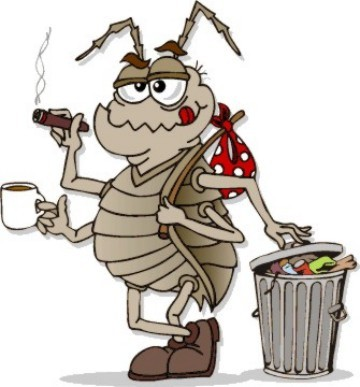
Cockroach 'Superbugs' Becoming Near-Impossible to Kill
In the ongoing evolutionary arms race between hardy cockroach pests and the humans creating poisons to kill them, it looks like the roaches may be winning.
Researchers recently discovered that German roaches (Blattella Germanica) are developing cross-resistance to a range of insecticides, which means that the roaches' offspring are born already impervious to toxins that they haven't directly encountered. And this sometimes takes place within a single generation.
Researchers tested the effects of three different courses of insecticides on roach populations in apartment buildings over six months. They exposed one group of roaches to a single insecticide. A second roach population received two insecticides from different classes. And a third was dosed with rotations of three insecticides one per month, for three-month cycles.
In most cases, roach populations either remained stable or increased, and rotating pesticides was found to be "mostly ineffective" at reducing their numbers, "due to cross-resistance," the study authors reported. Offspring were not only resistant to the pesticide that their parents encountered but also unexpectedly showed signs of resistance to other classes of insecticides as well.
The only experiment that worked at all was the single pesticide; it was highly successful in a population that happened to have almost no resistance to the toxin. However, in another experiment the researchers tested a group of insects that had slightly more resistance. In that group, the number of roaches actually increased, with generations born to resistant survivors. A single female roach can produce dozens of offspring every few months.
Roaches spread bacteria that can cause disease; their feces and shed body parts carry allergens that can trigger asthma; and the mere sight of them can cause psychological distress in some people.
Ridding urban homes of these pests will require strategies more complex than chemical treatment alone. A combination of approaches such as improved sanitation, traps and even vacuums to suck them up will likely be far more effective than relying on pesticides to do the job.
 English
English Arabic
Arabic


